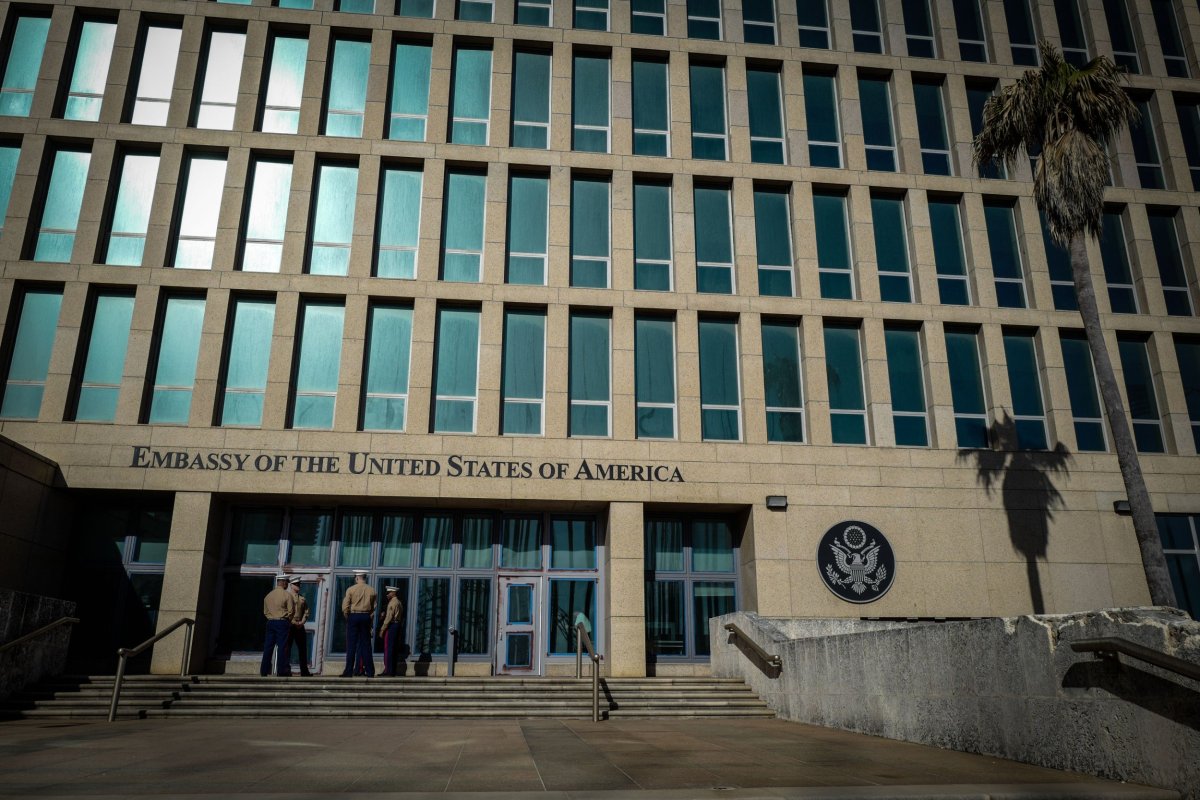New analysis of a suspected "sonic attack" on the U.S. Embassy in Cuba suggested that a mysterious high-pitched drone, thought to have been intentionally used to bombard American diplomats in 2017, may have been caused by local crickets.
The Havana embassy halved its staff when officials reported headaches, nausea and other symptoms after hearing the mysterious noises in their residences. A recording of the sound was published by the Associated Press soon after, appearing to support the theory that the staff were targeted by some kind of acoustic weapon.
Read more: Mass hysteria or microwave weapons—What's behind the "sonic attacks" on U.S. diplomats in Cuba?
But British and American scientists have now suggested there could be a far less ominous explanation for the mysterious din: a local species of cricket.
In their research, which has not been published in an academic journal or peer-reviewed by other scientists, the investigators posited that the Indies short-tailed cricket, or Anurogryllus celerinictus, could be the culprit, rather than Cuban agents.
Alexander Stubbs of University of California Berkeley, and Fernando Montealegre-Zapata of the University of Lincoln in the U.K., said the recording matched the call of the cricket "in duration, pulse repetition rate, power spectrum, pulse rate stability and oscillations per pulse."
The recording did not perfectly match that of a calling Indies short-tailed cricket, with the recording exhibiting an uneven pulse structure not observed in calling insects. Stubbs and Montealegre-Zapata suggested that it could be due to the different environments in which the recordings were made.
Scientific studies would normally use insect calls recorded outside in the wild, while the embassy staff said they could hear the sounds inside their residences. If the recordings were made inside, the researchers wrote, echoes off the walls, floor and ceiling might explain the discrepancy.
When the duo tested the idea by playing the recording in a room through a single speaker, it produced a result even closer to the original recording.
The scientists did not investigate the causes of the health problems reported by those affected, and suggested more research was needed to consider the "potential psychogenic effects, as well as possible physiological explanations unrelated to sonic attacks."
A team at University of Pennsylvania analyzed the affected diplomats in March 2018, finding they had suffered concussion-like injuries. Other medical workers disputed the findings, suggesting that the doctor overseeing the analysis may have misinterpreted the findings.
The Guardian noted that descriptions of the sounds differed from person to person and that not all those who fell ill reported the unusual sounds. Some described the noise as grinding or like the sound of cicadas, while others said they heard buffeting similar to that caused by an open car window.
For their part, Cuban officials vehemently denied any involvement in the incident, which some experts chalked up to mass hysteria among the diplomatic staff.
Stubbs told Newsweek the sound would have been even more piercing than in the recording released by the AP. As for the symptoms some diplomats experienced, Stubbs said, "As far as I am aware, there is no mechanism for a cricket call causing physical damage to humans. I think that the debate on if mass psychogenic illness could be a potential explanation for some of this is for medical experts.
"My only hope here is that any U.S. or Canadian personnel in Cuba who heard who sounds like the recording released by the AP can feel better knowing there is a harmless explanation for those sounds," Stubbs continued.
"The recording we analyzed has been in the public domain for so long and was widely reported on in the media as a potential 'sonic attack' recording," he added. "I would hate for someone to hear a sound like that and be concerned they were at risk of developing physical symptoms."
Montealegre-Zapata told The Guardian, "The recording is definitively a cricket that belongs to the same group," explaining that the human ear interprets the call as "a continuous sharp trill." He added, "I am not surprised that this call could disturb people who are not familiar with insect sounds."
This article has been updated to include comments from Alexander Stubbs.

Uncommon Knowledge
Newsweek is committed to challenging conventional wisdom and finding connections in the search for common ground.
Newsweek is committed to challenging conventional wisdom and finding connections in the search for common ground.
About the writer
David Brennan is Newsweek's Diplomatic Correspondent covering world politics and conflicts from London with a focus on NATO, the European ... Read more
To read how Newsweek uses AI as a newsroom tool, Click here.








